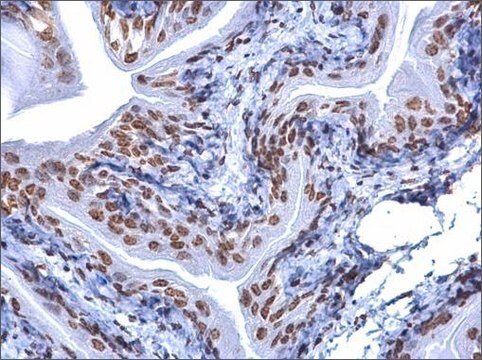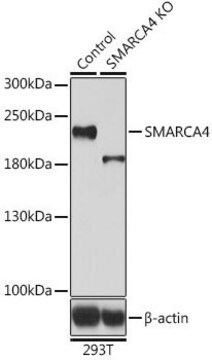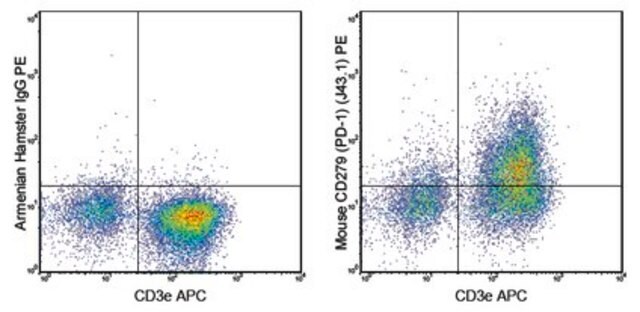SAB4200690
Anti-EpCAM antibody, Mouse monoclonal
clone Ber-EP4, hybridoma cell culture supernatant
Synonym(s):
Anti-CD326 antigen, Anti-EGP, Anti-Epithelial cell surface antigen, Anti-Epithelial glycoprotein, Anti-KS 1/4 antigen, Anti-KSA, Anti-Major gastrointestinal tumor-associated protein GA733-2, Anti-Tumor-associated calcium signal transducer 1
About This Item
Recommended Products
biological source
mouse
Quality Level
conjugate
unconjugated
antibody form
culture supernatant
antibody product type
primary antibodies
clone
Ber-EP4, monoclonal
form
buffered aqueous solution
species reactivity
human
technique(s)
immunofluorescence: 1:500-1:1,000 using human breast adenocarcinoma MCF-7 cell line.
immunohistochemistry: 1:250-1:500 using heat-retrieved formalin-fixed, paraffin-embedded human colon carcinoma sections.
immunoprecipitation (IP): suitable
isotype
IgG1
UniProt accession no.
shipped in
dry ice
storage temp.
−20°C
target post-translational modification
unmodified
Gene Information
human ... EPCAM(4072)
General description
Immunogen
Application
- immunofluorescence
- immunohistochemistry
- immunoprecipitation
Biochem/physiol Actions
Physical form
Disclaimer
Not finding the right product?
Try our Product Selector Tool.
recommended
Storage Class Code
10 - Combustible liquids
WGK
WGK 1
Flash Point(F)
Not applicable
Flash Point(C)
Not applicable
Certificates of Analysis (COA)
Search for Certificates of Analysis (COA) by entering the products Lot/Batch Number. Lot and Batch Numbers can be found on a product’s label following the words ‘Lot’ or ‘Batch’.
Already Own This Product?
Find documentation for the products that you have recently purchased in the Document Library.
Our team of scientists has experience in all areas of research including Life Science, Material Science, Chemical Synthesis, Chromatography, Analytical and many others.
Contact Technical Service








